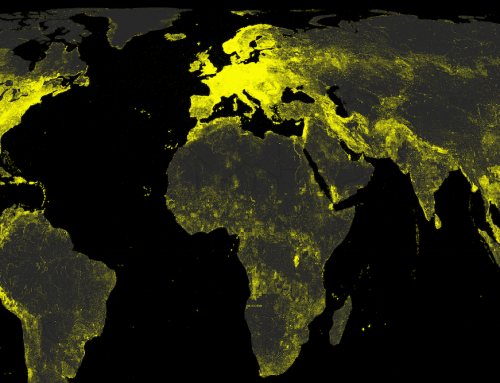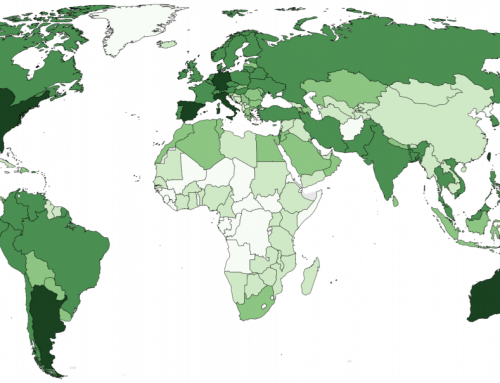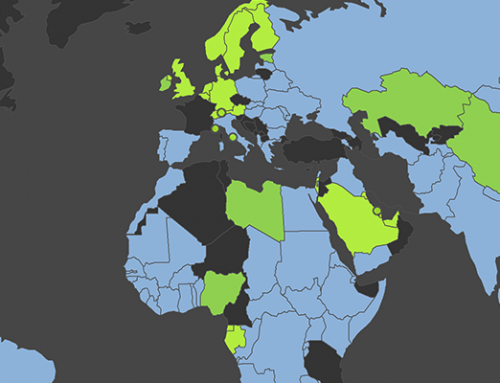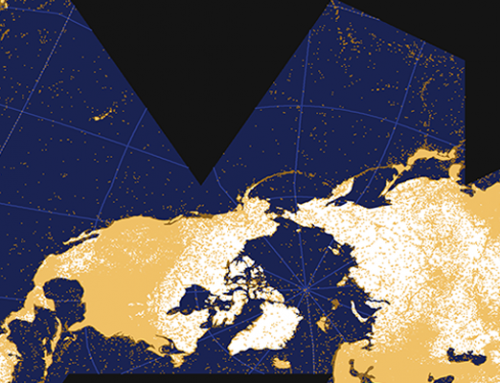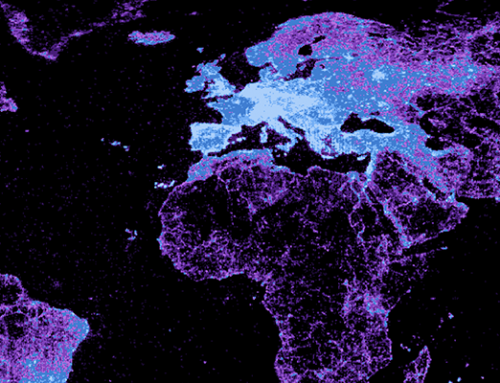(Click to see full image)
This visualization plots the number of Wikipedia articles about every country in Africa in order to show an important facet of their online visibility.
Data
Taking data from the February 3rd, 2013 Wikipedia dump of all published articles and supplementing this with geographic coordinates from two other geocoding projects (WikiLocation and WikiProjekt Georeferenzierung), we identify 3,789,064 Wikipedia articles (in all languages) that contain geographic information (in other words, these are articles about towns, monuments, forests, birthplaces, battles, festivals, and many other things that can be geographically placed).
After obtaining these data, we filtered out any articles that didn’t clearly represent a distinct place; this meant removing both lists of places, and articles about places on other planets. We chose the most representative location for articles that had more than one location attached to them.
We then supplemented the data with information about edits made to all language versions of Wikipedia derived from the official Wikimedia traffic statistics, as well as other national-scale data obtained from the World Bank.
The data are visualized in a linked view: on the left there is a hexagon-based cartogram in which the size of each country is depicted based on the number of Wikipedia articles in its territory (each hexagon represents about 25 Wikipedia articles). On the right a standard, non-distorted map is displayed as a reference of our usual perception of the geography of Africa.
The shading of each country represents its value for any of the additional variables you choose to visualize using the dropdown-menu above the maps.
Findings
The map distortions reveal stark regional imbalances in the quantity of user-generated content in Wikipedia about different parts of the continent. In terms of numbers of articles, South Africa (8,500 articles), Egypt (6,500), Algeria (6,400), Morocco (5,400), Madagascar (4,300), Kenya (4,200) and Tunisia (3,000) are comparably well covered. Whereas Equatorial Guinea, Swaziland, Republic of the Congo, Djibouti, Rwanda, Guinea Bissau, Lesotho, Burundi and Sierra Leone each contain fewer than 600 Wikipedia articles. Bear in mind that all of Africa combined contains only 2.6% of the planet’s Wikipedia articles despite having 14% of the world’s population and 20% of the world’s land.
At the global scale (in an article that we currently have under review), we found that the number of Wikipedia articles within (or describing) a country can be explained to a large degree by just three factors: (1) the size of its population, (2) the number of its fixed broadband internet connections, and (3) the number of edits committed to Wikipedia by its population.
Using that model we find that some African countries contain roughly the number of articles we would expect given their population, internet connections, and Wikipedia-related activity. However, some do better than one would expect and some worse. In the former group we find about half of the countries in Sub-Saharan Africa, e.g. Mali, Chad, Niger, Burkina Faso, Liberia, Ivory Coast and the Republic of the Congo. Despite beating expectations, some of those countries still have very few articles about them, and we speculate what may be happening is that non-locals are writing about those places e.g. for the sake of completeness. Whilst outsiders potentially have access to relatively well-sourced information (such as libraries and digital resources), this dynamic can also be problematic because of the likely absence of crucial local knowledge and insight about those places.
Some of the countries that fare significantly worse than we would expect include Sudan, Uganda, Malawi, Nigeria, Ghana and Zambia. In terms of representation on Wikipedia, these countries continue to have lower than expected numbers of articles despite their population, connectivity and numbers of Wikipedia editors.
Scarcity of user-generated content may unfortunately lead to a vicious cycle where failing to reach a critical mass of representation could perpetuate certain countries’ positions on the periphery of the global knowledge economy.
